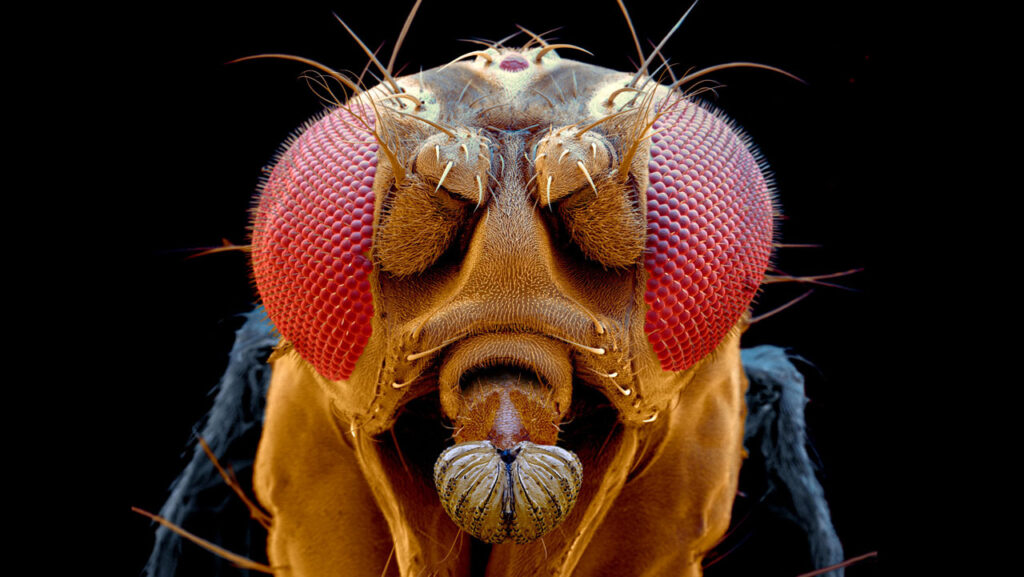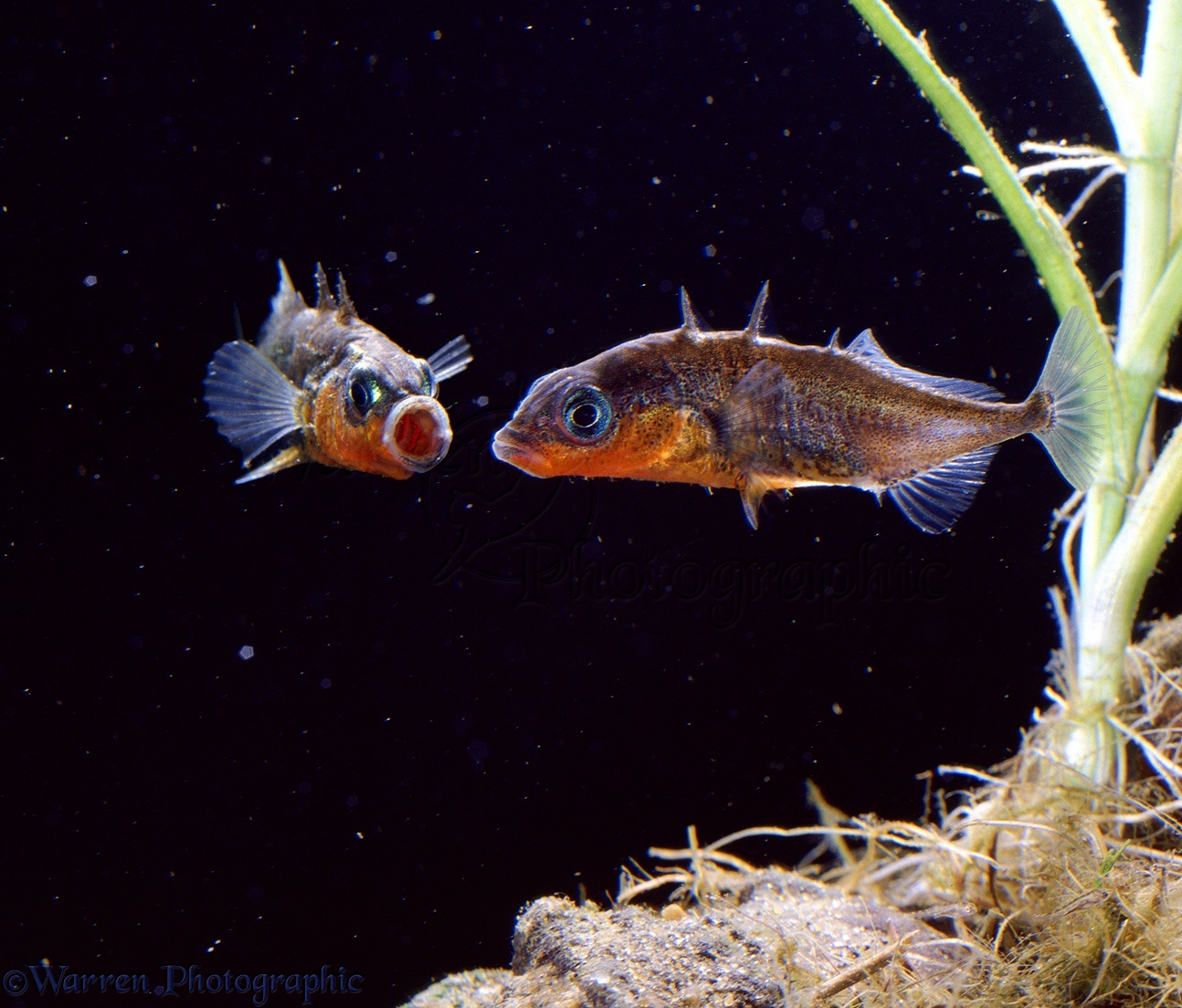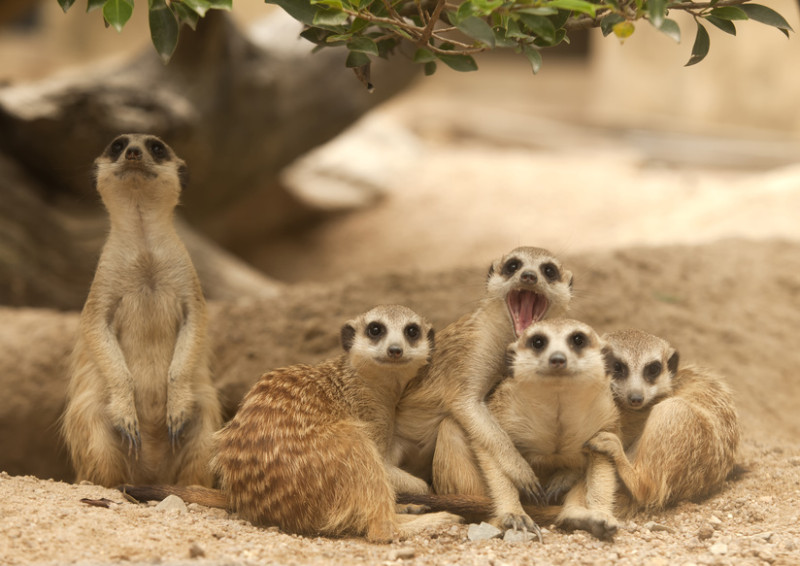By Dexter Lowe
A review of the research article Divergent selection on behavioural and chemical traits between reproductively isolated populations of Drosophila melanogaster, by Jin, Barbash, and Castillo

(image credit ScienceSourceimages)
Why the Fly?
The unassuming fruit fly is to many people merely a nuisance; however, it has led to breakthroughs so significant to human life it has won numerous Nobel prizes (McKie). Drosophila melanogaster is a species of fly that belongs to the genus Drosophila. These flies have a short lifespan, mature very quickly, and have a genetic make-up that is very similar to humans. Because of these traits the fruit fly is known as a model organism, used in empirical studies to help us understand a wide range of biological phenomena. One such study was conducted in 2022 by researchers from Cornell University and the University of Nebraska, and could possibly provide insight into the factors of divergent intrasexual and intersexual selection (Jin et al., 2022).
Sexual selection is an important evolutionary factor because it can produce new genetic variation, and can be just as crucial to an organism’s success as natural selection. It can be further broken down into intrasexual and intersexual selection. The former pertains to competition between individual organisms of the same sex, with the goal of accessing a mate of the other sex. The latter is closely intertwined, and refers to whom members of differing sexes choose to mate with. Together, these selection factors can work together to create a more genetically diverse population.
Going further, when a population becomes separated, whether it is by physical separation (geographic isolation), different times of reproduction (temporal isolation), or different behaviors (behavioral isolation) it can become reproductively isolated. This isolation can happen relatively quickly, due to sexual selection creating expeditious changes in mating preferences. But what changes are being made, and why do they matter? These are the questions being pursued with fruit flies (Jin et al. 2022).
What’s more important? Behavior or Chemical Traits?
The researchers in this study attempted to determine what traits were under divergent selection by using strains of fruit flies that modeled larger populations that had asymmetrical reproductive isolation. Reproductive isolation is the process of preventing matings between individuals from different populations. This can be achieved by a number of different mechanisms such as geographic isolation, behavioral isolation, or physiological differences. You may ask, how can reproductive isolation be asymmetrical? This occurs when one strain mates without preference, while the other strain has preference for partners of the same strain only. Examining asymmetrical isolation can help researchers pinpoint which traits, whether it is chemical or behavioral, makes the difference in preference.
In this case, Drosophila melanogaster populations from around the world are reproductively isolated by differing behavioral and chemical traits. This is a result of divergent selection, which occurred when two strains of fruit flies were separated geographically. Because of this separation they began to develop different diverse behaviors and chemical signals. Knowing this, the goal of the research was to determine “which specific male traits are females selecting, and are these traits under divergent sexual selection?” (Jin et al., 2022).
Evidence
The two strains that were used in this research study were denoted as M-type and Z-type, and were from different territories. The Z-type stayed in the ancestral territory of southern Africa. The M-type strains were those that had left Africa 10,000 to 15,000 years ago to locations in Europe and North America. With a physical separation of this nature the two strains became geographically isolated. Courtship traits and cuticular hydrocarbons (CHCs) have been under divergent selection during this separation, creating diversity in both Z-type and M-type strains. Geographic isolation over a time period this large for a species with a relatively quick lifespan resulted in an incompatibility to mate between strains (Jin et al., 2022). The reproductive isolation between these strains was asymmetric, meaning that M-type females would mate with both M- and Z-type males, while Z-type females preferred to mate with only Z-type males.
To examine whether divergent selection is currently ongoing, researchers examined cuticular hydrocarbons, for differences in compound abundance. Cuticles are present in many insects and are a main component of the exoskeleton. CHCs are thought to have waterproofing functions, but to also act as a type of communication signal (Menzel et al., 2017). By determining the abundance of different compounds found on the CHCs of different strains, researchers can narrow in on commonalities and differences. These differences could play a role in why one strain may have successful copulation amongst members of the same strain, and unsuccessful encounters with a different strain.
They also sorted mating behaviors they put into the categories of “separate, engaging, singing, singing-2, scissoring, circling, attempted copulation, and copulating” (Jin et al., 2022). It was established that courtship initiation would be recorded after non “separate” behaviors occurred. In other words, if the fly’s were interacting in any capacity it was considered a courtship behavior.
Once data was compiled, it was statistically analyzed to examine courtship behavior and plasticity. They concluded that courtship of Z-type and M-type males is significantly different, and that geographic strains are reproductively isolated. In addition, they found that male courtship behavior and cuticular hydrocarbons are plastic. A plastic trait is one that has the ability to change when presented with different conditions in the environment. In other words, the CHCs and courtship behavior changed in different settings. One example of behavior that Z-type strains used and was not found in M-type flies was scissoring, which is quick opening and closing of the wings. They also observed Z-type males spending less time singing on average (Jin et al., 2022). CHC compound amounts varied when males were presented with different strains of females, displaying that they are plastic and could play a role in courtship.
The conclusion of reproductive isolation arose from M-type males and Z-type females producing larvae much less than crosses between Z-type males and Z-type females (Jin et al., 2022). This exhibits that if two individuals cannot produce viable offspring with one another they have become reproductively isolated.
Now What?
While the results of the study did show divergent selection and asymmetrical reproductive isolation, more experiments need to be conducted to determine the role of traits under selection. For example, it was unclear whether African male behaviors (Z-type) had developed different behaviors. It was also expressed several times that sample sizes were too low, resulting in an inability to determine if some male strains were significantly different from one another (Jin et al., 2022). It may be beneficial to revisit these crosses with a larger sample size to increase the confidence of any significant results.
It was determined that four out of the five examined CHC compounds had differences among strains, but the role of these differences was not explained. Furthermore, without knowing what job the traits or compounds in the CHCs do, further exploration into the significance of different CHC compounds is needed to figure out their role in the courtship puzzle. This experiment could be easily replicated with greater sample sizes, and further emphasis on cuticular hydrocarbon analysis, to corroborate the results of Jin et al,. 2022 and increase the importance Drosophila melanogaster has in modern evolutionary biology.
Further Reading
Dean M Castillo, Daniel A Barbash, Moving Speciation Genetics Forward: Modern Techniques Build on Foundational Studies in Drosophila, Genetics, Volume 207, Issue 3, 1 November 2017, Pages 825–842, https://doi.org/10.1534/genetics.116.187120
This journal article from 2017 provides a larger perspective on the discoveries that can be achieved with the genus drosophila. It was compiled by two of the authors from this research article; Dean Castillo and Daniel Barbash.
Mirzoyan Z, Sollazzo M, Allocca M, Valenza AM, Grifoni D and Bellosta P (2019) Drosophila melanogaster: A Model Organism to Study Cancer. Front. Genet. 10:51. doi: 10.3389/fgene.2019.00051
This review article provides a comprehensive list of the cancer research that Drosophila melanogaster has played a part in. Similar development of cancer in flies and humans are described. The relevance of fruit flies in scientific research for human disease is dramatic.
References
Jin, B., Barbash, D. A., & Castillo, D. M. (2022). Divergent selection on behavioural and chemical traits between reproductively isolated populations of Drosophila melanogaster. Journal of Evolutionary Biology, 35, 693 – 707. https://doi.org/10.1111/jeb.14007
Leslie, M. (2020, April 2). Proteins that sense light also sense taste, at least in fruit flies. Science. Retrieved March 4, 2023, from http://dx.doi.org/10.1126/science.abc0403
Markow, T. A. (2015, June 4). The natural history of model organisms: The secret lives of drosophila flies. eLife. Retrieved March 23, 2023, from http://dx.doi.org/10.7554/eLife.06793
McKie, R. (2017, October 7). Six Nobel prizes – what’s the fascination with the fruit fly? The Guardian. Retrieved March 23, 2023, from https://www.theguardian.com/science/2017/oct/07/fruit-fly-fascination-nobel-prizes-genetics
Menzel Florian, Blaimer Bonnie B., & Schmitt Thomas (2017). How do cuticular hydrocarbons evolve? Physiological constraints and climatic and biotic selection pressures act on a complex functional traitProc. R. Soc. B.284: 20161727. 20161727. Retrieved April 14th, 2023, from http://doi.org/10.1098/rspb.2016.1727



